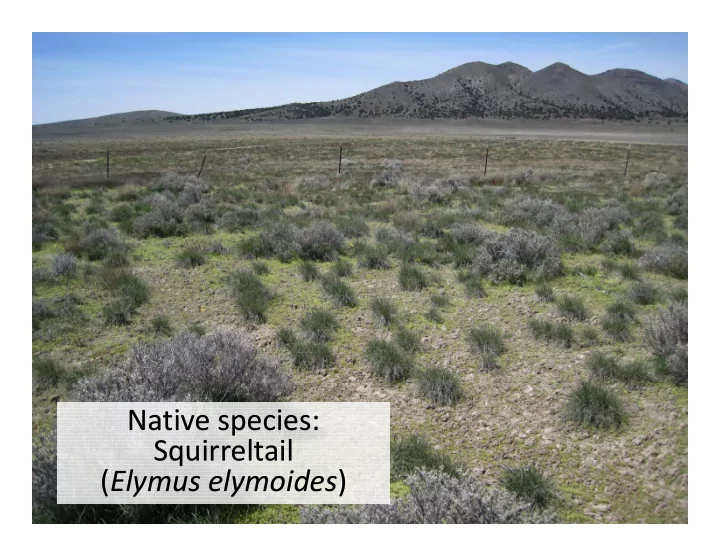

Native species: Native species: Squirreltail Squirreltail Squirreltail Squirreltail ( Elymus elymoides ) ( Elymus elymoides )
Invasive species: Invasive species: Cheatgrass Cheatgrass Cheatgrass Cheatgrass ( Bromus tectorum ) ( Bromus tectorum )
E. A. Mordecai, unpublished
Competition between diatoms A Asterionella formosa i ll f Synedra ulna Cyclotella meneghiniana
A longstanding theoretical result: g g Number of species ≤ number of limiting factors Volterra 1928, Levin 1970
A longstanding theoretical result: g g Number of species ≤ number of limiting factors Limiting factors include: • resources (food space) • resources (food, space) • physical factors (temperature, pH) • other species Volterra 1928, Levin 1970
Models: Number of species ≤ number of limiting factors Photo credit oceanworld.tamu.edu N t Nature: Number of species >> number of limiting resources N b f i b f li iti G. Evelyn Hutchinson (1961): “The paradox of the plankton”
What’s missing? • Spatial heterogeneity (Tilman 1982, Tilman & Pacala 1993) • Trophic structure (predators) (Janzen 1970, Holt 1984) T hi ( d ) (J 1970 H l 1984) • Recruitment limitation (Levins & Culver 1971, Hastings 1980) • Non ‐ equilibrium dynamics (Armstrong & McGehee 1980) • Movement behavior (Abrams & Wilson 2004) • Environmental fluctuations (Chesson 1994) E i t l fl t ti (Ch 1994) • Differences among individuals (Clark et al 2007)
Peter Chesson, 2000. “Mechanisms of maintenance of species diversity” Annual Reviews of Ecology and Systematics diversity . Annual Reviews of Ecology and Systematics Species will coexist if each species has a positive growth rate when rare. “Mutual invasibility.” equalizing mechanisms are those that reduce fitness q g differences between competitors. stabilizing mechanisms are those that cause a species stabilizing mechanisms are those that cause a species population growth rate to increase when rare. (a common example might be niche differences). destabilizing mechanisms are those that cause a species population growth rate to increase when common. p p g
(Mordecai 2011 Ecol. Monog. )
Recommend
More recommend